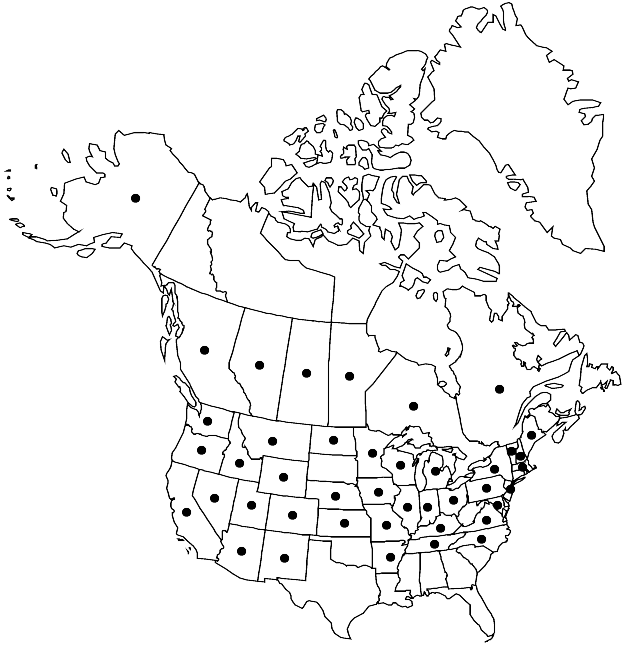Rosulabryum laevifilum
Biodivers. Poland 3: 162. 2003.
Plants very small to medium-sized, bright green. Stems 0.3–1.5 cm, distinctly singly rosulate, innovations short, rosulate. Leaves of main rosette and innovations similar; irregularly shrunken or contorted but not spirally twisted around stem, erect-spreading when moist, obovate, flat, 0.4–3 mm; base decurrent; margins plane or recurved to mid leaf, serrulate distally, limbidium present, often weak, of 1 or 2 rows of cells; apex acute; costa highly variable, not reaching apex to short-excurrent in same rosette, awn slender when present, irregularly twisted when dry; proximal laminal cells long-rectangular in rosette leaves; medial and distal cells short-rhomboidal, 12–20 µm wide, 3–4:1, walls thin, not porose. Specialized asexual reproduction by gemmae in distal leaf axils or sometimes arising from leaves, green when young, brown when mature, finely papillose to ± smooth, and rhizoidal tubers, brown, (70–)100–200 µm. Sexual condition dioicous. Capsule inclined to nutant, brown to red-brown, subcylindric, 2–4 mm.
Phenology: Capsules mature Apr–Aug.
Habitat: Bark, rotten wood, rock, soil
Elevation: low to high elevations (0-2500 m)
Distribution

Alta., B.C., Man., Ont., Que., Sask., Alaska, Ariz., Ark., Calif., Colo., Idaho., Ill., Ind., Iowa, Kans., Ky., Maine, Md., Mass., Mich., Minn., Mo., Mont., Nebr., Nev., N.H., N.J., N.Mex., N.Y., N.C., N.Dak., Ohio, Oreg., Pa., Tenn., Utah, Vt., Va., Wash., Wis., Wyo., Europe.
Discussion
Rosulabryum laevifilum is the most widespread species of the genus in the flora area with filiform gemmae, and it is the most common corticolous species. The sporophytes are rare. Specimens on bark are often very small compared with those on other substrates. See discussion under 8. R. flaccidum.
Selected References
None.